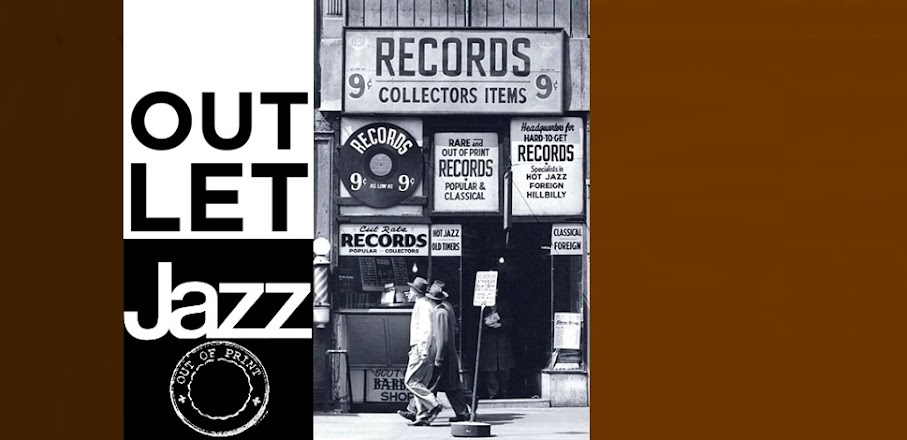"My main idea is to get back to simplicity", says Brew Moore of his work these days. "I like a small group —such as the quintet we have on this album— where there is no other front line and I can let myself go. The biggest kick to me in playing is swinging — freedom and movement. And with a small group, I can do this more easily".
"Music must be a personal expression of one’s own world and way of life. When everything else gets to be a drag there is music for forgetfulness and also for memory and for a reminder that there is more good than bad in most things. The idea of playing for me is to compose a different, not always better I’m afraid, melody on the tune and basis of the original song, rather than construct a series of chord progressions around the original chords. I feel that in several spots in this group of tunes we attain the rapport necessary for good jazz. I hope so".
And when you listen to these numbers, you will agree that Brew has done what he set out to do. These all swing and even Brew, who is most critical of his own work ("I guess I never have been happy with anything I did") had to say of this album, "It swings. You can say that".
For this album, Brew assembled the kind of group he is most at home with. It was by and large the same group with which he worked off and on during most of 1955 and ’56 in San Francisco.
This is an informal album, relaxed and easy as Brew wanted it. The tunes are the sort of things he plays at night in the various clubs where he works — ballads, the blues, original tunes. On all of them, one aspect or another of Brew’s musical character gets a chance to show itself.
One of the numbers, "Fools Rush In", was cut at a concert at the University of California in August of 1955. I am particularly fond of the way Brew plays Johnny Mercer’s lovely ballad. Brew is a swinger, true; but when he plays a beautiful tune like this, his tone and his concept are as big and as warm as anyone could want.
Brew has two absolutely golden gifts. He swings like mad and he has soul. These are things you cannot learn by woodshedding, or in any conservatory. You have to be born with them or learn them by living. Brew had them and he also has a priceless gift for phrasing. *Ralph J. Gleason (Liner notes)*
Lesterian tenor saxophonist Brew Moore (1924-1973) spent much of his career like an archetypal Fifties counterculture icon, always on the move, turning up in New York, or San Francisco, Copenhagen or Stockholm for a year or so, playing beautifully and then disappearing. Unsurprisingly, he left very few recordings, particularly of his early US career, which makes this collection, recorded on the West Coast, particularly valuable.
The three dates included on this set were all cut in San Francisco with local (and now obscure) musicians: trumpeter Dick Mills, pianist John Marabuto, bassist Max Hartstein, drummer Gus Gustofson and guitarist Eddie Duran. Marabuto contributed three originals; Mills wrote "Rotation", and the other four songs are familiar standards. Moore plays well (despite a hectic lifestyle, he was pretty consistent on records) and the music is relaxed and swinging. *Jordi Pujol*
Side 1
01 - I Can't Believe That You're In Love With Me
(McHugh)
02 - Fools Rush In
(Mercer)
03 - Rotation
(Mills)
04 - I Want A Little Girl
(Mencher, Moll)
05 - Five Planets In Leo
(Marabuto)
Side 2
06 - Them There Eyes
(Pinkard)
07 - Them Old Blues
(Marabuto)
08 - Tea For Two
(Youmans)
09 - Rose
(Marabuto)
#1, #2, #5, #6, #8:
Brew Moore (tenor sax), John Marabuto (piano), Eddie Duran (guitar #2), Max Hartstein (bass), Gus Gustafson (drums).
Recorded at University of California, San Francisco, August 1955 (#2) and Marines Memorial Hall, San Francisco, January 15, 1956 (#1, #5, #6, #8).
#3, #4, #7, #9:
Brew Moore (tenor sax), Dick Mills (trumpet), John Marabuto (piano), Max Hartstein (bass), Gus Gustafson (drums).
Recorded at Marines Memorial Hall, San Francisco, February 22, 1956.


Thank you, blbs!
ReplyDeletethanks, beautiful!
ReplyDelete